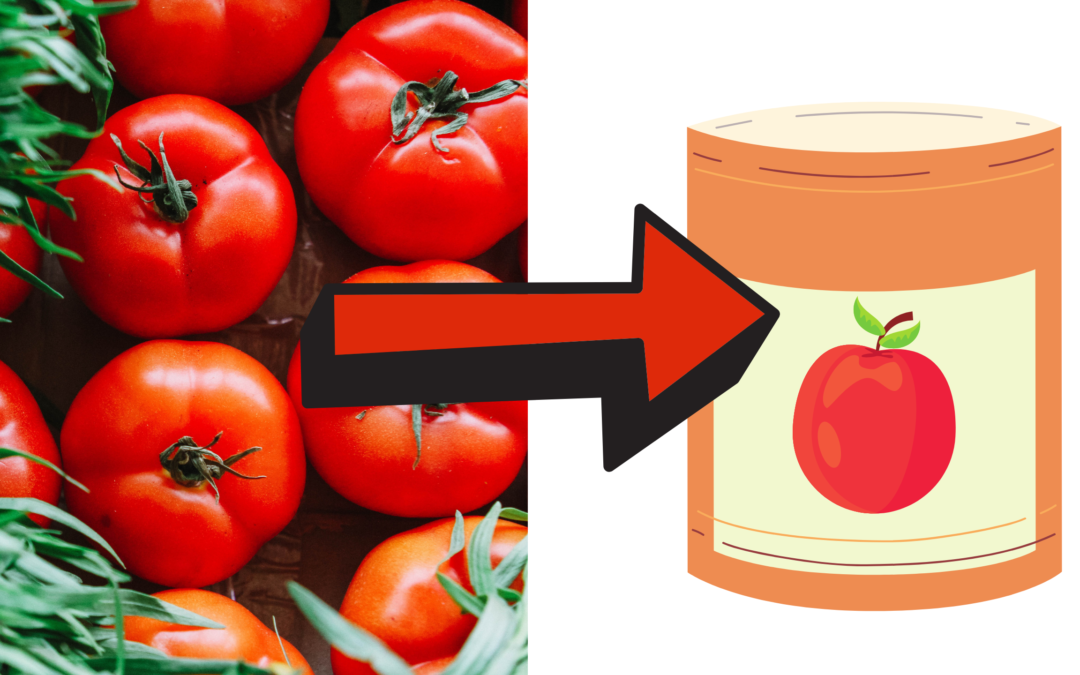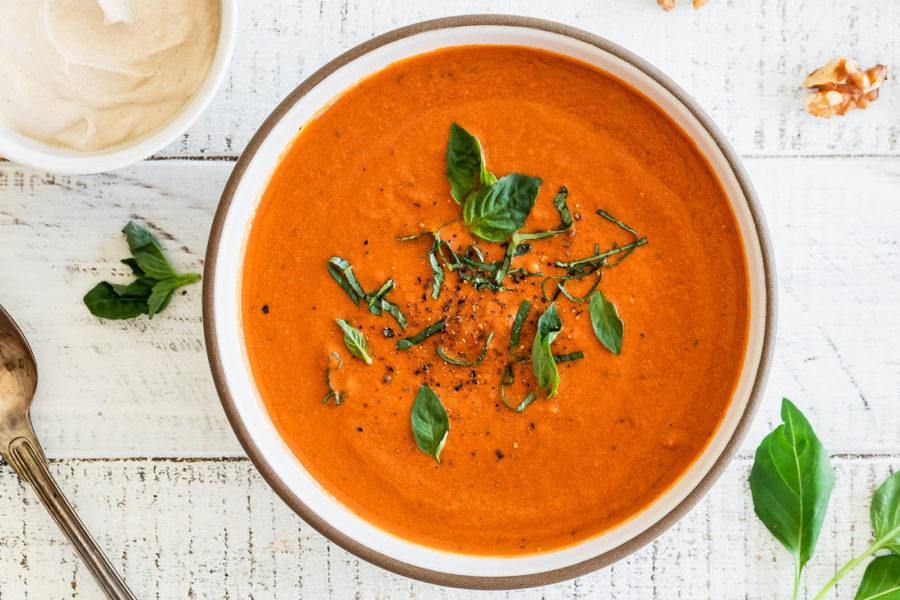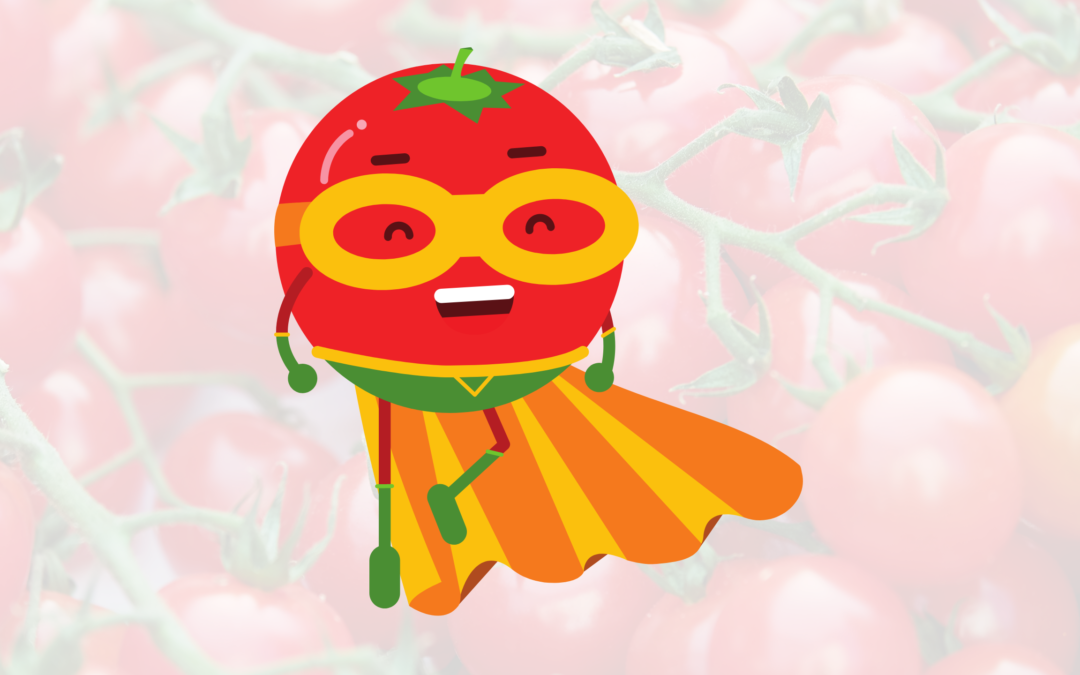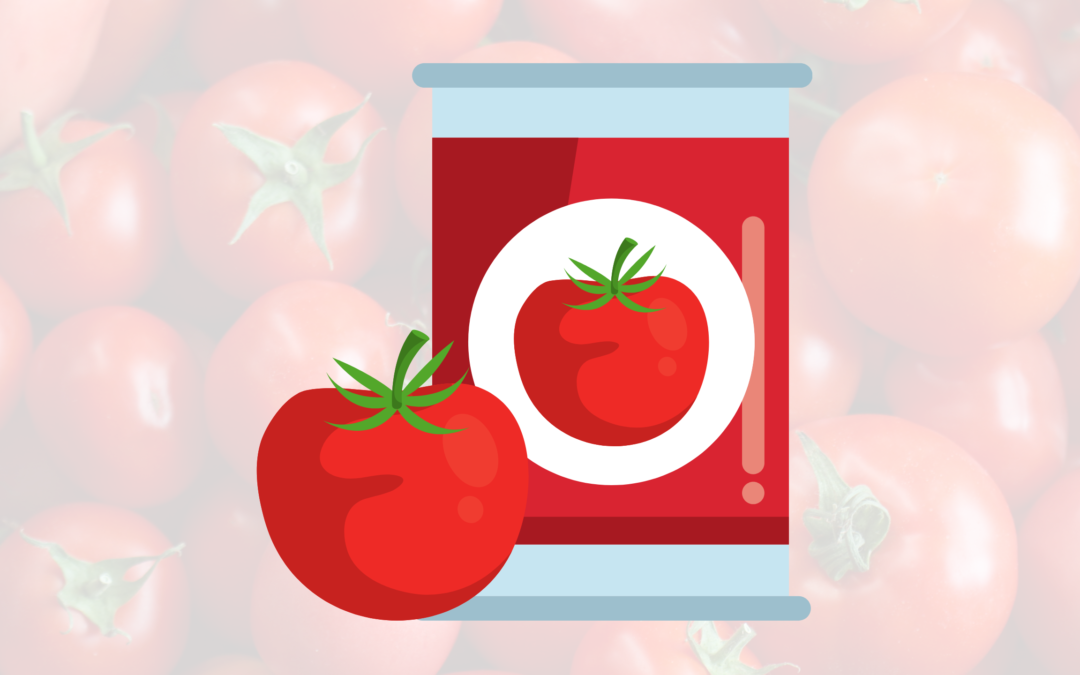
by Tomato Wellness | Dec 23, 2021 | Food and Nutrition, Media Recipe, Recipes
Looking for a tasty appetizer that will please a crowd? Check out this one skillet beefy 7-layer dip! This dip combines ingredients like sweet onion, sour cream, black beans, chiles, canned tomatoes, jalapeños and cheddar cheese and will hit the spot when you are craving Mexican cuisine!
To make this appetizer, you just need to add the ingredients to a baking dish, throw it in the oven and (not so) patiently wait for it to finish! After the dip comes out of the oven, you will be left with a bubbly, cheesy, and melty dip that is perfect to pair with tortillas or chips on the side. This is a recipe that can easily be finished off while you are busy entertaining guests.
Other than the protein, one of the other key ingredients in this recipe is tomato paste. Tomato paste is a great ingredient to use do develop a depth of flavor, add color, and boost the nutritional value! Tomatoes are a great source of nutrients like vitamin C, vitamin K, folate, potassium, and lycopene. Both vitamin C and lycopene are antioxidants that function in our body to reduce inflammation and destroy free radicals that can cause disease. So, the next time you are shopping, pick up some tomato paste. It is such a versatile ingredient that can be used in a wide variety of dishes from Italian to Mexican cuisine!
Get the full recipe for One Skillet Beefy 7-Layer Dip by visiting our friends at the Beef Council.
Looking for another delicious appetizer? Check out this recipe for BLT Dip.

by Tomato Wellness | Dec 20, 2021 | Food and Nutrition, Health, News
Many people purchase fresh produce over canned due to an assumption that it’s better for health. However, this is not always the case! Including canned foods (like fruit and veggies) in your diet can be an affordable and easy way to bump up the nutrient content in your diet. Learn more about how canned foods can be the ticket to a healthy diet.
It is no secret that a diet rich in fruits and vegetables is good for you, as it’s associated with a reduced risk of chronic diseases like heart disease, diabetes, and cancer. However, purchasing abundant quantities of fresh produce may not be feasible for people and can be their biggest barrier to consuming a healthy diet. Additionally, many people view processed vegetables as less nutritious or even unsafe. However, this is a false notion. Processing foods does not automatically imply that it becomes healthy–in fact, it can improve digestibility, nutrient bioavailability, and food safety [1].
You may be asking yourself how canned tomatoes can be part of a healthy diet. After all, did you know that tomatoes are the second most consumed vegetable in the USA [1]? This could be due to their affordability, versatility, and nutritionally dense content from lycopene. This flavonoid provides many benefits, including anti-inflammatory and caner fighting properties. Canned tomatoes have a higher lycopene content than their fresh counterparts because of the canning process. When tomatoes are heated it increases the lycopene content thanks to the cells inside of the tomatoes exploding during the heating process [1]. This allows them to release their compounds which can then be absorbed by our body and used to fight disease!
The next time you stock up on canned goods, don’t forget to pick up a few cans of tomatoes to boost flavor and health! After all, canned foods can be part of a healthy diet.
Learn more about the health benefits of canned tomatoes here:
Lycopene and Canned Tomatoes May Help with Cancer Prevention
Health Connection Between Tomatoes and Lycopene
The link between canned tomatoes and higher nutrition intake
References:
- Wu, X., Yu, L., & Pehrsson, P. R. (2021, October 19). Are processed tomato products as nutritious as fresh tomatoes? scoping review on the effects of industrial processing on nutrients and bioactive compounds in tomatoes. OUP Academic. Retrieved December 16, 2021, from https://academic.oup.com/advances/advance-article/doi/10.1093/advances/nmab109/6403479?login=true

by Tomato Wellness | Dec 16, 2021 | Food and Nutrition, Media Recipe, Recipes
Looking for a plant-based ingredient to add that creaminess factor to your soup? Try using walnuts in this Creamy California Walnut and Tomato Soup. This is a classic recipe, made completely plant-based. Try serving it alongside a grilled cheese for the ultimate combo!
This soup gets its beautiful color from crushed tomatoes. When blended with the unique addition of walnut cream, it creates a rich orange color that is bursting with nutrition. The red pigment within tomatoes comes from a nutrient called lycopene, which is a powerhouse antioxidant with anti-cancer and anti-inflammatory properties. The lycopene content found in canned tomatoes allows this ingredient to be one of the most useful, healthy additions to just about any meal. Since canned tomatoes have even MORE nutritional value than fresh tomatoes, they provide a powerful impact on human health.
Get the full recipe for Creamy California Walnut and Tomato Soup by visiting our friends at California Walnuts.
For other delicious soup recipes, check out some of our favorites:
California Walnut Firehouse Chili
Santa Fe Chicken Soup
Fideo Soup

by Tomato Wellness | Dec 14, 2021 | Food and Nutrition, Health, News
What are some of your favorite superfoods? If tomatoes aren’t on that list, then they should be! From cancer-fighting properties to anti-inflammatory benefits, here are some reasons why tomatoes are the new superfood.
When you think of the word superfood what comes to mind? Is it a tomato? Tomatoes are such a commonly eaten food filled with so much nutritional power, yet you may not think of them as a superfood. Not only are tomatoes packed with flavor, but they are also filled with important nutrients like fiber, vitamin C, vitamin A, potassium, calcium and more! One of the most important nutrients that truly makes the tomato a superfood is lycopene.
Lycopene is a powerhouse nutrient because it’s an antioxidant that has been shown to fight chronic disease. In the body, lycopene is mostly stored in the liver, adrenals, prostate, and can also be found in other parts of the body like the brain and skin [1]. As we age or develop chronic diseases, lycopene bioavailability decreases [1]. It is important to continually consume foods that are rich in lycopene such as tomatoes to supply our body with a steady source. Lycopene has been proven to have anticancer, antioxidant, anti-inflammatory, and antidiabetic properties [1]. Additionally, canned tomatoes are shown to have a higher lycopene content than their fresh counterpart. This is due to the heating process that tomatoes undergo during the canning process, as it activates the lycopene and allows your body to absorb and use it more readily.
So, what are you waiting for? The next time you’re at the store go ahead and grab a can (or three) of some canned tomato products to use in the kitchen this week. Need some recipe inspiration? Try out some of our favorites:
Shakshuka Pita Pizzas
Curried Veggie Rice Bowl
Swiss Chard Pecan Lasagna
References:
- Imran, M., Ghorat, F., Ul-Haq, I., Ur-Rehman, H., Aslam, F., Heydari, M., Shariati, M. A., Okuskhanova, E., Yessimbekov, Z., Thiruvengadam, M., Hashempur, M. H., & Rebezov, M. (2020, August 4).Lycopene as a natural antioxidant used to prevent human health disorders. MDPI. Retrieved December 16, 2021, from https://www.mdpi.com/2076-3921/9/8/706/htm

by Tomato Wellness | Dec 11, 2021 | Food and Nutrition, News
Are fresh fruits and vegetables better for us than their processed alternatives? The answer may surprise you! Keep reading to learn more about processed food and its nutrition value.
There are many rumors out there when it comes to the nutrient content of fresh vs processed food. Many believe that “fresh is best” when it comes to fruits and vegetables; however, emerging evidence shows that this may not be true!
During the off season, many fruits and vegetables can become pricy and harder to find in their fresh form. This is where purchasing canned alternatives may be more friendly to both your wallet and your health! One example of this is the tomato. Found in many forms (fresh, frozen, canned, dried, and juiced), processed tomatoes are a good way to enjoy this healthful produce item all year long. In fact, studies show that the nutrition content of canned tomatoes contained significantly higher amounts of minerals such as sodium, potassium, and calcium [1]. Additionally, the vitamin C content of canned tomatoes is higher in canned tomatoes than their fresh counterpart [1].
Another nutrient found within tomatoes that is an antioxidant is called lycopene. Lycopene becomes more bioavailable when heated, therefore it is more prominent in canned tomatoes than fresh. During the canning process tomatoes are heated which activates the disease fighting lycopene. Choosing canned tomatoes can be a great way to incorporate healthy foods in your diet on a budget!
Learn more about the benefits of lycopene with these resources:
Lycopene and Canned Tomatoes May Help with Cancer Prevention
Health Connection Between Tomatoes and Lycopene
What is Lycopene?
References:
- Abdullahi, I. I., Abdullahi, N., Abdu, A. M., & Ibrahim, A. S. (2016, June 25).Proximate, mineral and vitamin analysis of fresh and Canned Tomato. Biosciences Biotechnology Research Asia. Retrieved December 16, 2021, from http://www.biotech-asia.org/vol13no2/proximate-mineral-and-vitamin-analysis-of-fresh-and-canned-tomato/





Recent Comments